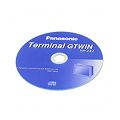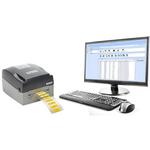Software development licenses grant legal rights and activation keys for tools like Integrated Development Environments (IDEs), Software Development Kits (SDKs), compilers, debuggers, static analysis suites, and graphical user interface (GUI) builders. Proper licensing keeps build pipelines predictable, audits clean, and releases on schedule across embedded, desktop, and cloud projects. Authorized distributors help with reliable stock, supplier-authorized products, and fast shipping that gives purchasing teams confidence. Software license catalogs cover subscription and perpetual models, node-locked and floating seats, multi-OS coverage, and terms defined in the End User License Agreement (EULA), plus practical details like offline activation, virtualization clauses, and maintenance windows.
How to Choose the Right Software Development Licenses
Your licensing model and budget plan come first. Subscription licenses spread cost across the year with continuous updates. Perpetual licenses focus on a single purchase plus optional maintenance for upgrades and support. Match seat type to how you'll actually use the software: node-locked works for a specific engineer and machine, while floating or concurrent seats fit shared labs and Continuous Integration (CI) agents. Check compatibility for Windows, Linux, or macOS, x86 or Arm, integrations with your compilers and debuggers, and any air-gapped activation path required by security policy. Hybrid teams should verify whether your license server supports remote "borrow" features to prevent blocked work during travel.
Popular Applications for Software Development Licenses
Purchasing managers, engineering leads, firmware developers, DevOps teams, and Information Technology (IT) asset managers buy from this category to keep toolchains legal, stable, and audit-ready. Licenses cover everything from board bring-up and device drivers to automated testing, build farms, and user interface design. Industrial automation, automotive electronics, aerospace and defense, medical devices, and telecommunications and networking all depend on these tools. Consumer electronics and the Internet of Things (IoT) rely on disciplined entitlement tracking to avoid last-minute surprises during validation and production. Consistent licensing reduces downtime and protects release cadence across all these industries.
Why Buy Software Development Licenses from Authorized Distributors?
Authorized distributors handle inventory management, shipping capabilities, and supplier authentication so you receive genuine entitlements aligned with publisher terms. They provide clean documentation, simple activation paths, and responsive customer service when you need help selecting seat types or mapping renewals. Professional distribution platforms make ordering easy with clear product data, competitive pricing, and secure checkout, so teams can standardize quickly without red tape. Keep your builds moving and your audits calm by purchasing software development licenses from authorized distributors.
Software Development Licenses: What You Need to Know
What's the difference between node-locked and floating licenses?
A node-locked license binds activation to one device or user and fits dedicated workstations. A floating license lives on a server and meters concurrent use, maximizing utilization across shifts, labs, and CI runners.
Perpetual vs. subscription: how do updates and renewals work?
Perpetual grants ongoing rights to run a version, while updates and support depend on active maintenance. Subscription bundles run rights and updates during the paid term. Access pauses if the term lapses.
Can licenses run in virtual machines (VMs) or containers?
Often yes, but publishers may require host binding, a license server, or specific hardware fingerprints. Review virtualization clauses and concurrency rules before imaging build fleets or deploying at scale.
How do offline or air-gapped activations work?
Common methods include challenge-response files, hardware dongles, or time-limited tokens moved through a secure channel. Plan provisioning and renewal windows so compliance stays intact without emergency workarounds.
contact us
 English
English
 Chinese
Chinese
 Italiano
Italiano
 Portuguese
Portuguese
 Deutschland
Deutschland
 French
French
 Russian
Russian
 Japanese
Japanese
 Turkish
Turkish
 Korean
Korean
 Spanish
Spanish


